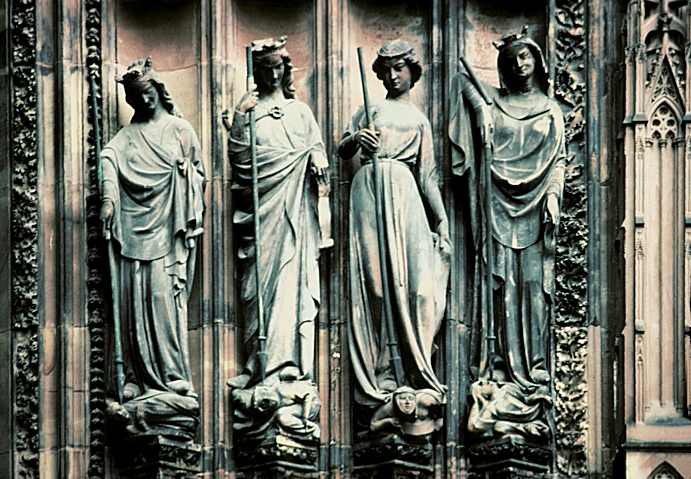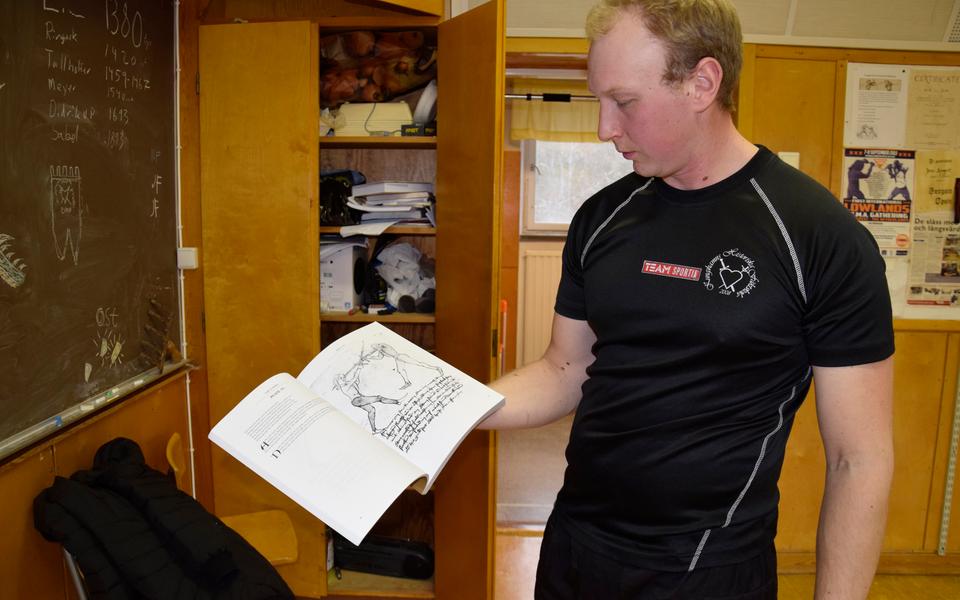
I know I am not the only one who feels fencing is more than training, research, techniques, sparring, and competitions. Being a fencer means something—but what, exactly?
Some of the best people I know are fencers, and their personalities are a part of their fencing. Their greatness as humans carries over to their fencing and vice versa. I have witnessed students and teachers grow and better themselves as a result of their commitment to these arts. I certainly feel that I have made a positive personal journey over the last decade. Much of it can be attributed to this art.
I do not mean ‘good’ here as in someone who altruistically makes the world a better place, but rather, ‘good’ as in personal growth. That distinction is counter-intuitive for the modern man because the ideal historical swordsman is a far more violent creature than what is acceptable today. He would use his sword to defend even minor infractions on his honour, which seems rather excessive by today’s standards. Likewise, practising HEMA raises a few eyebrows once people understand the level of contact that we allow. “Why on earth would anyone want to do that?“
But there is no way around it. Fencing is anachronistic. Regardless of the fact that having a propensity for lethal violence or training for it is considered bad in today’s civilian world, I still think there is value in accepting it as part of our endeavour. We cannot recreate historical martial arts without trying to understand the true meaning of what we do, which is why I don’t think it is such a bad idea to celebrate injuries, scars, and broken bones to some degree.
This martial approach to life is a recipe for personal growth. It is obvious when I watch my students and fellow fencers. If someone steps into GHFS with an attitude, they will be humbled. If they are too nice to hit someone over the head, they will toughen up. Learning to stand up for yourself, as well as understanding that you don’t need to push people around when you know who you are, are lessons inherent in fencing. There is perhaps also something less tangible, the recognition that life may not always fit the box that we try to squeeze it into.
You have to pay the price
These lessons of personal development have to come at a cost. You do not learn them in your comfort zone. Fencing is about putting your life at stake, and that is perhaps the least comfortable thing you can do. Fencers used to know this, and still preferred to risk their lives rather than accept even an insult. I believe we have to embrace some of this attitude. As modern people we may not have to rely on fencing to defend our lives, nor do we generally settle disputes with duels, but we should still recognise that core truth about what we do. This means that at the very least you have to face your fears, even if it means taking the risk to lose a fight, break some bones, or receive a few scars. You have to push yourself further than you are comfortable with if you want to develop.
And it has to hurt. If you put yourself through hell regularly, you will grow as a person, because by doing so you confront whatever flaws in your character that tell you to quit. It makes you a better fencer and builds character. If you do it right, it will spill over to the rest of your life, since you have learned how to commit to something.
Making a decision
I don’t care if you approach this in a stick fight, boxing, Battle of the Nations, or whatever flavour of HEMA you prefer. Your choice is your choice, and that is all that matters. Stepping outside of your comfort zone has to be a personal decision. It defeats the purpose of the act if you require someone to hold your hand.
All of the best fencers I know have an inner drive to train hard, fight hard, and read the sources without being told to do so. They have no excuses. Besides, it is important to remember that stepping out of your comfort zone cannot be quantified by anyone but yourself. After all it means different things for someone young and someone old.
My point is that you have to fully dedicate and immerse yourself to get the most out of being a fencer. Of course, it is possible to train a little on the side and do twenty other things without full commitment, and still enjoy all of them, but that will never truly test your mettle. There is room for fun and games, but at the heart of our fencing, we must commit entirely and take it seriously. Dedication is the only way to enjoy anything on a deeper level.
Qualities of a fencer
There are also certain values that are intertwined with fencing. One example is loyalty. Today there are very few consequences for doing your friends an injustice, turning your back on them, or abandoning them, since you do not rely on them to defend your life. Modern people can come off as immature teenage girls who trash talk each other as soon as the other person is absent. However, if you really want to be a fencer, then loyalty is not such a bad thing. Pay your dues and be loyal to your club, your fellow fencers, and your instructors! Be there for them when they need you, and back them up, even when you do not fully agree. If you disagree with them, you can always tell them face-to-face.
Another trait of the modern man is the need to define himself in opposition to others, rather than by his own achievements. In this digital age we can express exactly how we feel about other people’s work without much consequence. We are brought up with such a conflated sense of being unique snowflakes that we think that our opinions hold as much value as other people’s deeds. I have also been guilty of this, and it is unbefitting a fencer. Looking back at times when such behaviour could easily end in a duel, it was prudent to be open-minded and showing a bit of temperance. Although today’s world may not offer the same lethal outcome, it is still prudent to be polite, well mannered, and open-minded. As fencers we should consider it our obligation.
Carry yourself with pride

The way we dress and carry ourselves is important. If you look at historical images of duels, you will see that not only the fencers, but also the seconds and other officials, dressed for the occasion. These are honourable affairs where life is on the line, and you had better show up in formal attire. Dressing well is a sign of respect and shows that you take fencing seriously. This is also why I personally do not like to see historical clothing at HEMA events, other than possibly in certain displays. They usually add a feeling of escapism and dorky dress-up party, instead of something profound and serious. Carrying ourselves well and dressing like we understand the underlying sober reality of fencing is an important aspect of what we do. For that reason escapism is counterproductive. If we don’t look like we take this seriously, how can we expect outsiders to respect us?

To be loyal and fair, to have some back-bone and not step down from a fight, to show restraint, to commit and take HEMA seriously—these are excellent things to strive for. After all, they fit the cardinal virtues rather well. For me, this is the heart of what we do, the glue between the drills, techniques, sparring, academic work, and competitions.
The reason for posting this is to encourage the community to continue on that positive journey where we use HEMA as a way to challenge ourselves and to find our own paths. In doing so, I believe there is less interest in polemic argumentation and more focus on sharing and mutual aid. When we understand that we can work together, though our personal goals may differ, everyone will benefit.
_______________________________________________________________
Acknowledgements
I must credit Scott Hellroth and Axel Pettersson for much of this article, not only because many of these ideas are a direct result of their influence, but also because they inspire me in my life. Thank you!
A huge thanks to Meg Floyd for proofreading and giving me some valuable feedback. All remaining errors are entirely my own.
Thanks also to Matt Galas, the Godfather of HEMA, for being who he is and giving me some excellent feedback.




